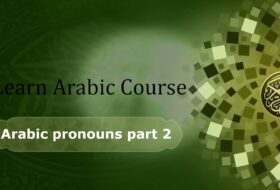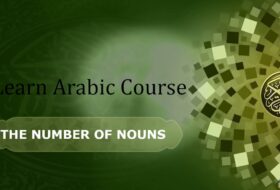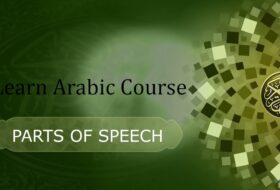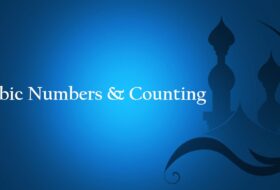Introduction
This session to I’m gonna talk to you about, you know, we’re zoning in on studying the Arabic for the purpose of understanding that we’re on. And just so everybody again has a heads up,I do want you to remember some of these things that I’m sharing with you. This is not relevant. Maybe for everybody but those of you that are interested in learning Arabic to help. You understand the Koran. I think you’ll find this discussion beneficial. Okay, so when it comes to learning any language, you wanna be able to acquire four skills, Okay? There any language that you’re good at you you wanna be able to say I have four skills in that language.
Those skills are:
Reading, writing, listening and speaking. I’ll say that again. Reading, writing, listening and speaking. And the way to organize those skills. Like when you go to like, I used to study Spanish in high school, and, I’m trying to learn some Turkish now, at one point or another. I’ve tried to learn several other different languages.
For example:
The listening When you go to a language class, your professor, your teacher will get you to say something speaking, I’ll get you to say my name is this or here’s how you say hello or here’s how you say Welcome. Here’s how you say Good evening, etcetera, etcetera. Right, that’s speaking.
They’ll try to introduce you to the alphabet of that language that’s writing. Obviously they’ll say something and expect that you understand what they said.
The reading They’ll put words on the board or in your textbook, and they’ll expect you to read it in that language the way it’s supposed to be pronounced. I want you to take those four skills reading, writing, speaking and listening and restructure them.

For that
Reorganize them in your mind again. We’re learning not Spanish or German or French. Actually, we’re not even learning Arabic for a general purpose. We’re learning Arabic to understand the Quran. It’s a very specific purpose. Are entire study of the language is focused primarily first on a book and then everything else in that language.
4 tips on how to learn Arabic successfully
In beginning, The speaking becomes less important. And writing becomes less important. Because for the average Muslim who just wants to understand the Quran , they’re not going to sit there and right, so little because they’re gonna read it, they’re not gonna write it. And even if they never learned how to write it properly, it wouldn’t make a difference. They’re not interested in writing.
So writing is not a top priority. If you’re studying Arabic for the purpose of the Quran especially those of you that are trying to study this part time, you have limited time to study anyway. And you want to make the most of every minute of effort you’re gonna put in too. Learn why would you spend time learning and and prioritizing something that won’t take you to your immediate goal ?
So writing is basically you put an X on it. In the beginning, there’s we’re not gonna focus on writing the same thing about speaking. I mean, okay, you know now how to say that it’s the weather is nice today or it’s sunny today.
So what ?
How is that gonna help you understand when the Imam reciting the prayer or when you’re reciting the Koran? So you’re speaking skills are about you producing language. You producing words on you expressing yourself. It’s not about understanding the Koran. So as an early skill set, even though in a normal Arabic classroom, these air or any foreign language classroom, these are like top priority skills, you start with these. Like if you don’t have this, what do you have that kind of thing? You know? And even if your friends say, Hey, Rahman Rahim .
So we come back to that. I mentioned four skills at the top of this session. I’ve reduced it now to to skills. It’s two skills are gone. Writing is gone for now, and speaking has gone for now. So what’s left. What’s left is reading and listening.
What’s left is reading and listening. Now, even within reading and listening will prioritize. By the way, focusing on two skills is way easier than focusing on four skills, isn’t it ?
For example.
if I’m listening to Arabic, I’m trying to process that information that it goes through my ears and my brains, trying to make sense of what’s being said the same way. If I’m reading, my eyes are taking these words and they’re making. I’m trying to make sense of it in my head. That’s input. But when you’re speaking or writing its output, you’re producing stuff.
So for the purposes of understanding the text of the Quran , the sacred text. We’re focused on input. We’re focused primarily on input now within input. One of them is a lot harder than the other. Uh, listening is way harder than reading.
It will be continue here part 2
See All Course.
Visit Our Website












